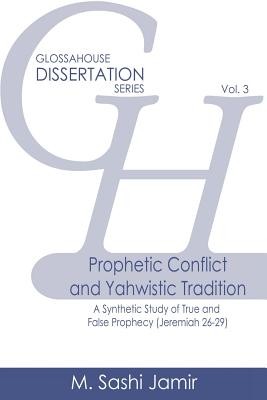
- We will send in 10–14 business days.
- Author: M Sashi Jamir
- Publisher: Glossahouse
- ISBN-10: 194269721X
- ISBN-13: 9781942697213
- Format: 15.2 x 22.9 x 1.6 cm, minkšti viršeliai
- Language: English
- SAVE -10% with code: EXTRA
Reviews
Description
This work argues that ancient Israel had an adequate rubric in its Yahwistic tradition for distinguishing between true and false prophecy. Generally, in Old Testament (OT) scholarship, it has been argued that ancient Israel simply did not have the capacity to discern between the two. In fact, there has been a tendency to reduce prophecy in the OT to a mere vaticinium ex eventu. This notion has persisted partly because of an inadequate understanding and poorly conceived epistemology of divine revelation and history. Thus, in order to better construe divine revelation and its relation to tradition as a fidei depósitum, Jamir employs a hermeneutic of critical realism. Furthermore, in this work he explores the development of Yahwistic tradition and the factors that might have contributed to the prophetic conflict that arose in ancient Israel. The latter analysis is aided by applying Gerhard Lenski's and Patrick Nolan's macro-sociology of agrarian societies to Jeremiah 26-29. A synthetic study of this sort provides "a" scope whereby one can suggest that ancient Israel had a rubric for distinguishing between true and false prophecy in its Yahwistic tradition.
EXTRA 10 % discount with code: EXTRA
The promotion ends in 21d.01:18:18
The discount code is valid when purchasing from 10 €. Discounts do not stack.
- Author: M Sashi Jamir
- Publisher: Glossahouse
- ISBN-10: 194269721X
- ISBN-13: 9781942697213
- Format: 15.2 x 22.9 x 1.6 cm, minkšti viršeliai
- Language: English English
This work argues that ancient Israel had an adequate rubric in its Yahwistic tradition for distinguishing between true and false prophecy. Generally, in Old Testament (OT) scholarship, it has been argued that ancient Israel simply did not have the capacity to discern between the two. In fact, there has been a tendency to reduce prophecy in the OT to a mere vaticinium ex eventu. This notion has persisted partly because of an inadequate understanding and poorly conceived epistemology of divine revelation and history. Thus, in order to better construe divine revelation and its relation to tradition as a fidei depósitum, Jamir employs a hermeneutic of critical realism. Furthermore, in this work he explores the development of Yahwistic tradition and the factors that might have contributed to the prophetic conflict that arose in ancient Israel. The latter analysis is aided by applying Gerhard Lenski's and Patrick Nolan's macro-sociology of agrarian societies to Jeremiah 26-29. A synthetic study of this sort provides "a" scope whereby one can suggest that ancient Israel had a rubric for distinguishing between true and false prophecy in its Yahwistic tradition.


Reviews